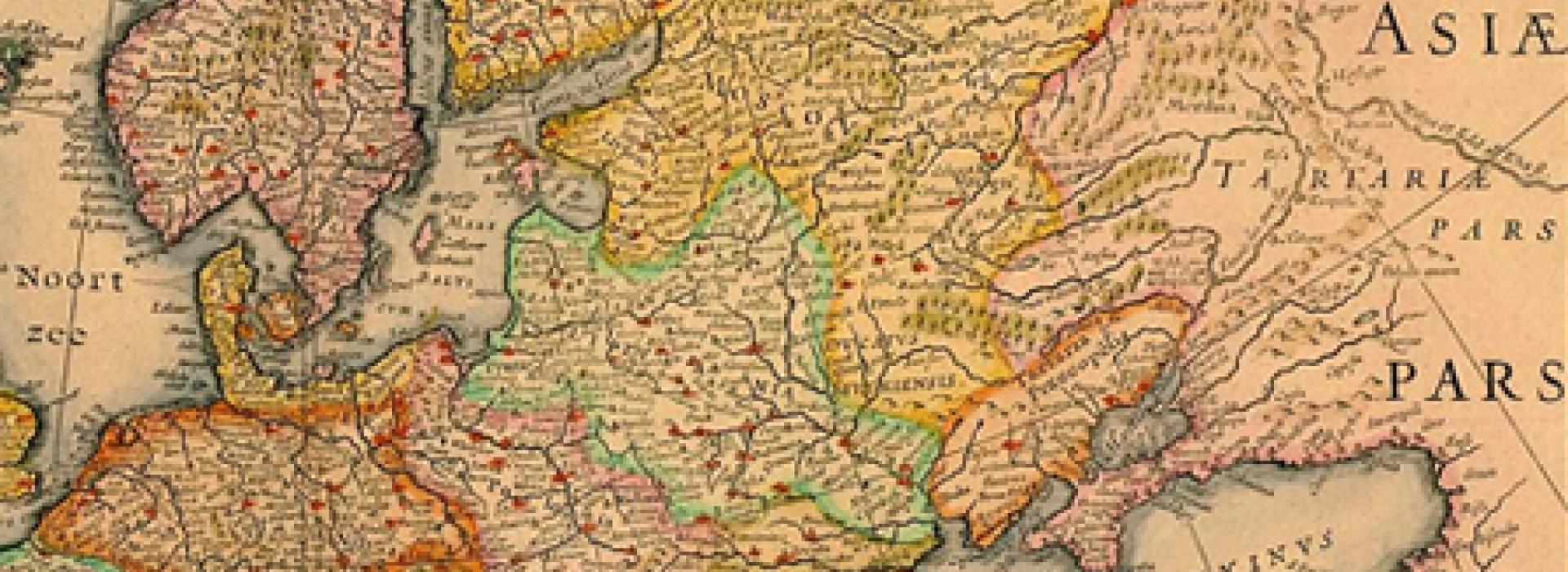Breadcrumb
Modern and Medieval Languages
Modern and Medieval Languages (MML) at Cambridge offers students the possibility of combining advanced language learning with the study of a wide range of literary, linguistic and cultural options. Students with an interest in History may be interested in the History and Modern Languages course.
The course is extremely flexible and allows final year students the additional option of reading papers in Anglo-Saxon, Norse and Celtic; Classics; History; Philosophy; Human, Social and Political Sciences; and Theology. In their third year, MML students spend a year abroad studying, working or volunteering before returning to Cambridge for their fourth and final year.
Peterhouse admits students for any two of French, German, Italian, Russian, Portuguese or Spanish. Alternatively, one of these languages can be combined with Classical Latin and Classical Greek, or to combine one of these with a Middle-Eastern language, such as Arabic. One of the two languages can be learnt from scratch (“ab initio”), with the exceptions of French and Latin. Detailed information for each language can be found under the Subject heading of the website of the Faculty of Modern and Medieval Languages.
Modern and Medieval Languages at Peterhouse
Peterhouse has a Fellow in French, Professor Mari Jones, and an external Director of Studies in German, Dr Anita Bunyan, and seeks to provide its students with the best possible tuition whatever their choice of language. The College employs a French lecteur/lectrice every year from the Ecole Normale Supérieure in Paris who is responsible for teaching conversation classes and is available to provide help with all aspects of language work.
Course Requirements
Applicants are expected to be studying at least one of the languages they wish to study to A level or equivalent. One or two subjects from English Literature, English Literature & Language, History or additional modern or classical language are advantageous. Please note it is not possible to study Modern and Medieval Languages as an affiliated student at Peterhouse, nor is it possible to study French as an 'ab initio' (from scratch) subject. Detailed information on application requirements can be found on the Faculty of Modern and Medieval Languages website.
The application process
We ask our MML applicants to send us two representative examples of recent essays. Candidates intending to read two post-A level (i.e. not ab initio) languages at Cambridge should submit one essay in each target language. Candidates intending to read one post-A level language and one ab initio language should submit two essays in the A level language to be read at Cambridge. Where particular difficulties exist, we are always able to suggest other kinds of work which may help us in our assessment.
Candidates may be asked to sit a written assessment. The same format of assessment will be used across all Colleges and more information can be found on the University website. You can expect either two or three interviews, depending on your choice of languages. Interviews for your post-A level language(s) will likely have a short reading and response exercise in the target language immediately beforehand. As we want everyone to be interviewed by a specialist in each of their chosen languages, you may find that one of your interviewers is from another Cambridge College.
You will be interviewed about your choice of languages, whether you intend to take these on from school or begin ab initio. The interview will take place in English for the most part, but you should expect some of the interview to be conducted in the foreign languages you are applying for if you have already studied them to GCSE level or beyond (the standard expected will, of course, be adjusted according to your level of study and the opportunities you have had to travel to countries where the language is spoken).
If you are taking A level (or equivalent) in the two languages you want to read at Cambridge, two interviews will contain questions about a short piece of prose in each language, which will be given to you shortly before your interview - time is allowed to read over the piece privately before the interview. This exercise will be designed to reveal your ability to comprehend and think about a text. If you will be taking one of your languages at Cambridge ab initio, the other interview will be intended to judge your motivation and suitability to read this language. No preparation or prior knowledge will be necessary, but some prior investigation into the relevant culture(s) associated with the language and a very basic knowledge of some of the challenges of the language in question will go a long way towards showing your motivation and enthusiasm for the ab initio language.
We would generally expect candidates who are native speakers of one of the languages offered to apply to study two additional languages.
Your interviewers will be looking to assess your potential as well as your achievements and they will be seeking to establish what you can do with what you have learnt. They will be looking for intelligence (an ability to think for yourself, to think analytically, critically and on the spot); linguistic knowledge and aptitude (a general interest in language issues, fluency and accuracy in your chosen languages); good powers of expression in both English and your chosen languages; motivation; and suitability for the course.
Typical conditional offers
Our typical conditional offer for MML is A*AA at A level. IB offers are usually for a minimum of 41-42 points, to include 776 or 777 at Higher level in relevant subjects. Offers are designed to be realistic, taking into account individual circumstances, and to reflect potential and likely levels of achievement. Most of those who receive offers will attain the grades required.


